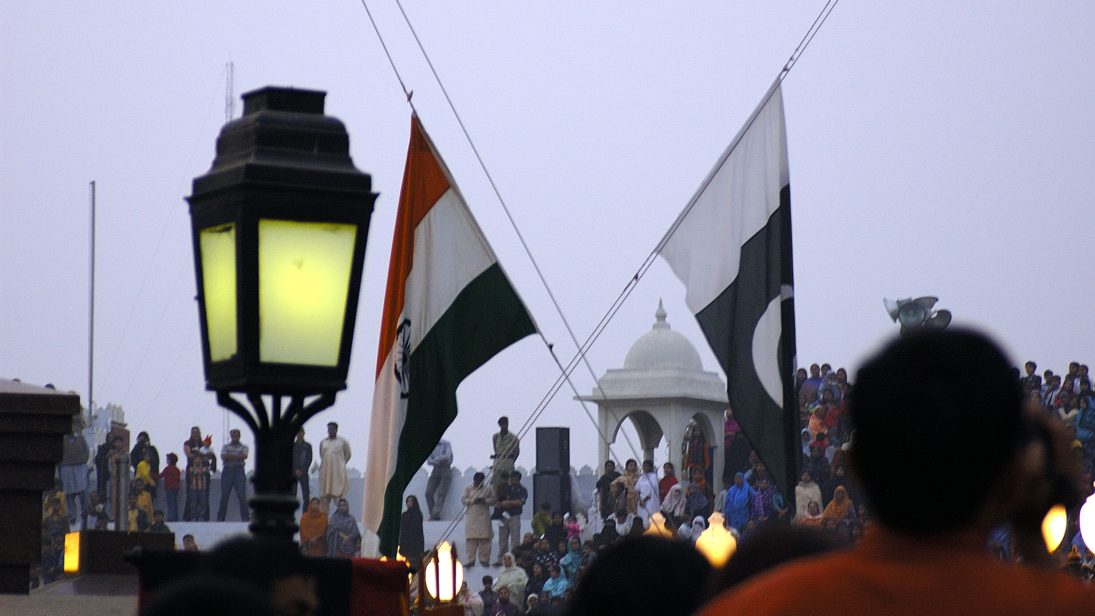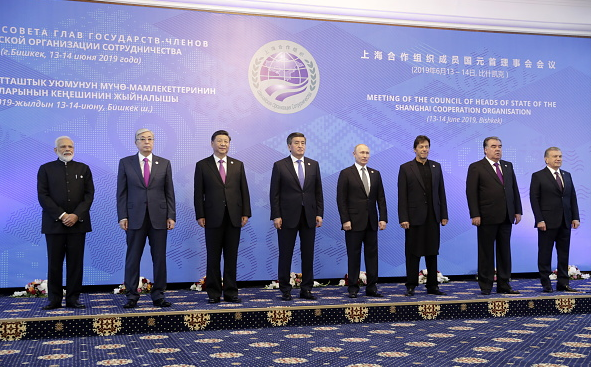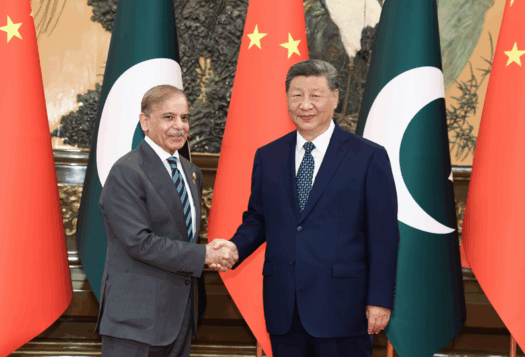
Prime Minister Narendra Modi’s first term began on a promising note for cross-border relations with his efforts to begin a dialogue process with Pakistan. However, since then, the relationship has deteriorated largely due to multiple attacks by Pakistan-based terrorists in India. This has been the trend in India-Pakistan relations—just as attempts at diplomacy or peace begin to make headway, they are marred by terrorist attacks by Pakistan-based groups. Hopes for peaceful engagement with the relatively new Pakistan Tehreek-e-Insaf government under Imran Khan were also shattered when a suicide bombing by the Pakistan-based terrorist group Jaish-e-Mohammed (JeM) on an Indian paramilitary convoy in Pulwama in Jammu & Kashmir killed 40 Indian personnel earlier this year. India and Pakistan seem to be on a trajectory of continuing tensions in Modi’s second term and despite some positive developments, there may be a lack of resolve and behavioral change to earnestly move on reconciliation efforts.
Recent History: Ties Under Modi 1.0
The Indian forces’ “surgical strikes” in Pakistan-administered Kashmir after the Uri attack in September 2016 and the airstrikes in Balakot earlier this year in response to the Pulwama attack have changed the narrative of India-Pakistan relations. This is because overt retaliatory military action by India to punish acts of terror emanating from Pakistani soil had not occurred until now at least partly due to the perception in India that Pakistan would resort to tactical nuclear weapons (TNWs) in response.
Under Pakistan’s policy of full-spectrum deterrence, not only is the threshold for the usage of TNWs reduced, but scholars also believe that their operational authority at the time of use would likely be delegated to battlefield commanders at the tactical level even though Pakistani officials deny this. In fact, after India’s airstrikes at Balakot, Pakistan made a veiled nuclear threat by calling a meeting of its National Command Authority, the country’s primary nuclear authority. Also, on May 23, as exit polls predicted Modi’s victory, Pakistan announced that it had tested the Shaheen-II ballistic missile capable of carrying a nuclear warhead.
With Modi’s Pakistan policy being characterized by a more-sticks-than-carrots approach, India’s options in response to any future high-profile terror attacks emanating from Pakistan might be increasingly kinetic and not shy away from escalation.
The debate on their effectiveness notwithstanding, these recent strikes by India clearly indicate that New Delhi stands ready to engage in unilateral action inside Pakistan if the latter does not heed its calls for action against terrorists. India has steadily upped the ante of its retaliatory action depending on the magnitude of the terrorist attack it is responding to, from subconventional strikes in Pakistan-administered Kashmir (after the 2016 Uri attack) to airstrikes in Khyber Pakhtunkhwa (post-Pulwama). But it has avoided breaching Pakistan’s nuclear threshold through careful targeting of “non-military” targets and the use of airpower, which allows going in and out of an adversary’s territory quickly. With Modi’s Pakistan policy being characterized by a more-sticks-than-carrots approach, India’s options in response to any future high-profile terror attacks emanating from Pakistan might be increasingly kinetic and not shy away from escalation.
Shifting Diplomatic Signaling
Despite the tense environment in the months following the Pulwama attack and Balakot airstrikes, a subtle shift seems to have occurred after Modi’s re-election. Responding to Modi’s win, Pakistani Prime Minister Imran Khan wrote on Twitter that he would like to cooperate with his Indian counterpart “for peace, progress and prosperity in South Asia.” In addition, Sohail Mehmood, former High Commissioner of Pakistan to India and a seasoned diplomat, was recently appointed Pakistan’s foreign secretary. His visit to New Delhi during Eid last month heightened speculation about a possible thaw between the two countries. In response to these overtures, Modi has been somewhat positive, thanking Khan for his wishes and saying that he has always prioritized peace and development in the region, but continued to express conditionality in his approach to Pakistan, reiterating that terror and talks cannot take place at the same time.

Possible Spoilers to Peace
On June 16, Pakistan appointed Lieutenant General Faiz Hameed as the new Director General of its premier intelligence agency, the Inter-Services Intelligence (ISI), described as a “hawkish decision” by Pakistan analyst Ayesha Siddiqa. As the civilian government led by Khan falters due to a struggling economy, the Pakistani military grows both in influence and authority. Lieutenant General Hameed is seen as a hardliner in the security establishment and has been known to interfere in Pakistan’s internal politics, including being accused of playing a role in Khan’s election by politically sabotaging former Prime Minster Nawaz Sharif. Given his background, his appointment might make it difficult for the Pakistani civilian government to strike a compromise with India.
Another challenge to the Indo-Pak relationship moving forward is that Modi’s election has fueled cynicism among some powerful Pakistani elites. Modi’s election victory is being perceived by some Pakistani lawmakers as an indication of a more aggressive Indian policy towards Pakistan. Certain Pakistani commentators have argued that a re-elected Modi government with a huge mandate may be more secure in taking unconventional policy decisions vis a vis Pakistan, such as possibly fueling dissent among the Baloch and Pashtuns. Some go as far as to say that Modi’s re-election might empower hardliners within Pakistan’s military establishment who have for decades raised the specter of a Hindu-majority India targeting Pakistanis and Muslims. Thus, Khan’s attempts at negotiating with Modi’s nationalist government could be met with skepticism in Pakistan’s strategic circles.
Ever since 2016, Modi’s strategy has been based on coercing Pakistan to act on terror camps on its soil. And now there are certain indications that a change may be coming, even if subtle.[…] But what stops New Delhi from resuming formal talks with Islamabad is wariness about Pakistan’s ability and will to act on terrorists within its territory that are perpetrating attacks in India.
On his part, Modi has held on to his strongman image vis-à-vis Pakistan, adhering to a stance of pressuring Pakistan to do more to fight terrorism before dialogue with India can take place. He circumvented inviting the Pakistani prime minister to his swearing-in ceremony by inviting leaders of the Bay of Bengal Initiative for Multi-Sectoral Technical and Economic Cooperation (BIMSTEC) member nations instead of the South Asian Association for Regional Cooperation (SAARC) nations. Presently, BIMSTEC includes all South Asian nations except Afghanistan, the Maldives, and Pakistan and experts see it as India’s attempt to create an alternative to SAARC. This could be understood as diplomatic isolation of Pakistan by India, part of New Delhi’s wider strategy to pressurize Pakistan internationally. Modi continues to reiterate the “talks and terror cannot go together” line at international fora to put pressure on Pakistan globally. His first overseas visit after re-election was to the Maldives, where he called for a global conference on anti-terrorism. At the Shanghai Cooperation Organization summit in Kyrgyzstan, Modi made a veiled attack on Pakistan in the presence of Imran Khan, saying that nations that sponsor, aid, and fund terrorism must be checked. And recently, Modi conveyed to Chinese President Xi Jinping that Pakistan must take decisive action to counter terrorism.
India and Pakistan: A Future of Hostile Peace?
Ever since 2016, Modi’s strategy has been based on coercing Pakistan to act on terror camps on its soil. And now there are certain indications that a change may be coming, even if subtle. Faced with economic pressure such as the Financial Action Task Force blacklisting and closure of border trade with India, Pakistan has seized over 200 religious seminaries and closed certain terrorist training camps. In addition, recently, Pakistan reportedly shared intelligence with India about a terror attack that was supposed to happen in in Indian-administered Kashmir.
But what stops New Delhi from resuming formal talks with Islamabad is wariness about Pakistan’s ability and will to act on terrorists within its territory that are perpetrating attacks in India. Modi’s non-negotiable stance on Pakistan stopping cross-border terrorism, coupled with his strong nationalist base and recent diplomatic success like JeM chief Masood Azhar’s terrorist designation at the UN could make an Indian compromise difficult without a significant shift in Pakistan’s behavior.
***
Click here to read this article in Urdu.
Image 1: Giridhar Appaji Nag via Flickr Images
Image 2: Mikhail Metzel/TASS via Getty Images


